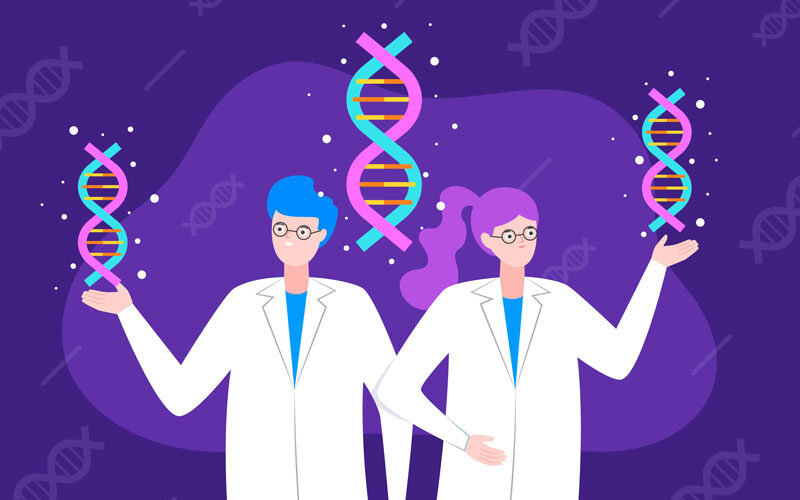1. How can we change human genes?
With the development of technology, we have reached the stage where we can transform our genes. As a way of modifying a gene, we can cut off unnecessary parts of our genes or insert new ones. We use genetic scissors to cut off the necessary parts of a gene. It is difficult to make the existing zinc finger nuclease and talen gene scissors, and the accuracy of the cutting site has been reduced. However, CRISPR CASS9 gene scissors show superior characteristics due to their high efficiency, low cost, and high accuracy (Nurton, 2020). We have been able to use these genetic scissors to cut off the part of the gene we want, and it has a beneficial effect on various scientific developments.
2. How does genetic modification benefit humans?
There are many benefits we can get from using genetic modification technology. Especially in this world, there are many people suffering from various genetic diseases. As the development of genetically modified technology enables treatments that were impossible, it provides them with a better life. Genetically modified technology also causes various medical advances. Various diseases can be treated through medical development, and certain cancers can be removed to help human health.
3. What are the disadvantages of genetic modification on humans?
Genetically modified technology is not yet complete, its effect is also unclear, and there is a problem that may cause another side effect. In addition, there is a disadvantage that genetic modification technology can make viruses harmful to the human body and use them as a tool in war (Rice, 2020). In addition, there is a disadvantage that if unnecessary genes continue to be removed over generations, human genetic diversity will decrease (Miller, 2017).
4. What to think about the ethical problem of genetic modification?
In 2018, the world’s first genetically modified baby was born in China (Normile, 2019). In other words, through this gene-modifying technology, a baby with superior genes can be born at the choice of parents. However, because genetic modification technology is so expensive, only the wealthy will create a class gap problem by producing children with superior genes. There are also customized babies born from genetic modifications for the treatment of humans with the disease. There will be problems with the human rights of children born genetically modified by other people’s purposes.
5. Conclusion
Using CRISPR CASS9 genetic scissors, access to many genetic-related experiments has been made possible. In addition, if an incurable disease is applied to people who need treatment through genetic modification technology, their quality of life has a good effect. However, human ethics problems can arise, such as babies born from genetic modification. Therefore, human genetic modification technology is a problem that requires systematic management and legal restrictions.
References
Miller, K. (2017). 6 Advantages and Disadvantages of Human Genetic Engineering. [online] FutureofWorking.com. Available at: https://futureofworking.com/6-advantages-and-disadvantages-of-human-genetic-engineering/ [Accessed 19 August 2022].
Nurton, J. (2020). Genetic scissors: at the cutting-edge of life. [online] www.wipo.int. Available at: https://www.wipo.int/wipo_magazine/en/2020/04/article_0004.html#:~:text=Their%20discovery%20of%20the%20CRISPR [Accessed 19 August 2022].
Normile, D. (2019). Chinese scientist who produced genetically altered babies sentenced to 3 years in jail. [online] www.science.org. Available at: https://www.science.org/content/article/chinese-scientist-who-produced-genetically-altered-babies-sentenced-3-years-jail [Accessed 19 August 2022].
Rice, G. (2020). The Genetically Engineered War. [online] Grounded Curiosity. Available at: https://groundedcuriosity.com/the-genetically-engineered-war/#.Yv-QQC7P3ZQ [Accessed 19 August 2022].
